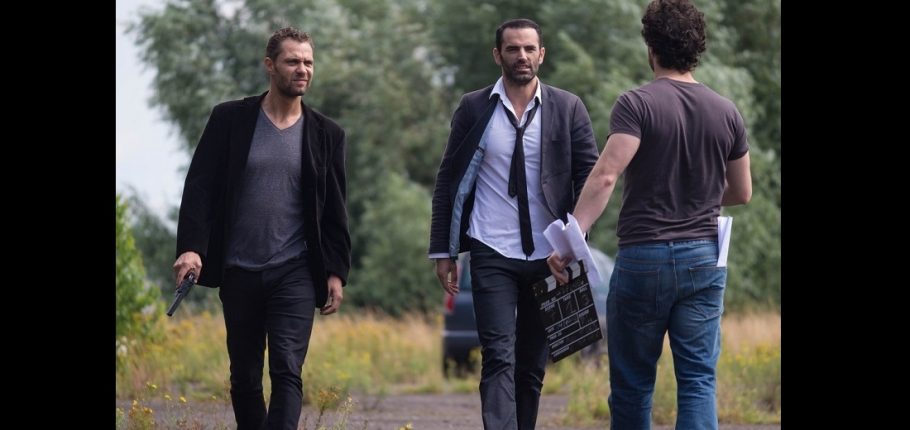
What (Most) Actors Want from (Most) Directors
Being a filmmaker means dealing with lots of people. Both on the business side creative sides of “the biz.” As a director you’ve got to be a very skilled communicator who’s capable of delivering information concisely and quickly, preferably with ruffling as few feathers as possible (whenever possible). As the leader whose job it is is to achieve the vision you’ve set out to capture, you need to enable nay, empower those around you to do the best work possible. Forget about the horror stories and myths about actors being precious or high maintenance. For the most part, actors are consumate pros. They arrive to the set ready to give it their all and what they do can be extremely taxing and draining. So if you want a great film, great pilot, music video, short, or webseries, it pays to know what (most) actors want from their director.
1 – A Safe Environment
You’re the director. You set the tone. You’re the person who dictates how the whole shoot will go. You’re the person who enables the other people to be their best. As such, be the best you can be. Be the person who is the leader. Be the general. Set a positive environment. Set a tone that won’t be conflict ridden or reactionary. You want to set a positive and creative vibe. Doing so you’ll find your actors more energized, less nervous, and more willing to ask questions. They’ll feel safe to come to you with their questions which enables any misunderstandings to be cleared up quickly and efficiently. This can help keep the production moving at a nice click.
2 – Clear Communication
Being unsure of what a director is asking of them is one of the most common complaints lodged by actors. Don’t beat around the bush. Tell the actors what you need. If at all possible, have table readings and rehearsals. These pre-shoot preparations enable the cast to nail the dialogue, build their confidence, and work on delivering an accurate, realistic portrayal of the characters they’re playing. The table read feels much more relaxed than the first day of shooting. As such, if you have notes or bits of direction you can share those in this safe environment, thus establishing a sense of trust and a solid rapport. Sure, as the director you’re the top dog but where would you be without their contribution, so communicate with respect. Doing so will reap better results too!
3 – Appreciation
Graciousness begets graciousness. If your actors and crew see you’re appreciative of even the little things, the lunch you guys are having, the costume-fix the wardrobe assistant did spur of the moment, that attitude will catch on during the production. Saying please and thanks and making eye contact immediately conveys respect and tells others “I see you.” If an actor gives it their all in a dramatic scene or a physically exhausting one, acknowledge their effort and praise their achievement! If you really want to set a positive tone, why not start each day with a small crew and cast meditation, goal, or thought. It’s a great opportunity to get all those separate minds humming together collectively, happily doing what they’re passionate about.
4 – A Less is More Directing Style
Don’t give line readings. It’s condescending to the actor. Tell them how you’re planning on creating the scene and then see how they organically fit into it. They’re actors so let them act. Let them create their own frequency, be their own creative force. If something really isn’t happening the way you need it to happen, consider discussing the character’s motivation or where the scene fits into the film. Then, invite the actor or actors to try the scene several different ways. You can film these rehearsals and may find you get what you need on take 2, 3, or 4.
5 – A Clear and Achievable Vision
A director without a vision is like a ship without a rudder. In order to get what you want, you must know what you want and have a very solid gameplan for getting it. Beyond simply imparting and sharing your vision, set your sight on inspiring the cast and crew with your vision. Simply knowing is relegated to the mind whereas feeling, sensing, and envisioning calls upon creatives’ emotions. Here’s where most actors do their best work. Imbue them with your vision, share it, and if you’re so inclined, collaborate with them on it.
6 – A Sense of Camaraderie
Most actors thrive in an enviroment that welcomes camaraderie and collaboration between the players. Actors know actors so sometimes it’s wisest for the director to just butt out and let them run through the material together. A few hijinks and gags can go a long way to boosting morale too.
7 – Ownership in the Project
Actors play a crucial role in the process and want to feel that their contributions matter. By welcoming their suggestions and/or being open to hear all about their process, research, and the backstories they’ve created for their characters you’re allowing them to get in deep and that’s ultimately a very good thing when it comes to getting great performances and keeping them invested in the project.
Stellar Films from Sundance 2017
6 Degrees of Kevin Bacon & Industry Connections



